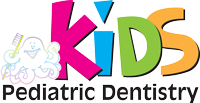14 Oct Minimizing the Effect of Sugary Foods on Oral Health
Practicing proper dental hygiene and regularly visiting a pediatric dentist will go a long way to ensuring the oral health of your child. Nevertheless, your child’s diet also plays a key role in their oral health. A diet full of sugary or acidic foods will greatly increase the odds your child has cavities or other oral health issues. Here’s a list of sugary foods to avoid or consume in moderation. We’ve already written an article on the best and worst drinks for healthy teeth if that interests you.
Foods to avoid eating
- Sugary Cereal: Many of the most popular cereals for children are loaded with sugar and sorely lacking in other nutritional value. Lucky Charms, Fruit Loops, Frosted Flakes, and Cinnamon Toast Crunch each have at least 10g of sugar per serving. Next time you’re shopping for cereal, consider a healthier alternative to these sugary cereals.
- Fruit snacks and Fruit Roll-Ups: Don’t be deceived by their healthy sounding name, both fruit snacks and fruit Roll-Ups pack a ton of sugar into each small package. A typical pack of fruit snacks has approximately 80 calories and contains around 11g of sugar. This is over 40% of the maximum recommended daily added sugars intake for kids.
- Candy: Almost everyone loves candy, kids included. Unfortunately, due to the high sugar content of candy, it should be a treat for your children, not something they eat regularly. When you give your kids candy, it’s best to avoid chewy candy. Chewy candy can easily get stuck between your kids’ teeth, increasing the buildup of plaque on their teeth.
- Cookies and Snack Cakes: Everyone knows what cookies are but the term snack cakes isn’t used very often. Snack cakes include foods such as Twinkies, Ding Dongs, and so on. If you were going to pick one to eat in moderation, cookies are likely the healthier choice as they generally contain less fat and sugar than snack cakes.
It can be difficult to completely cut sugary foods out of your childrens’ diets. In addition to minimizing the amount of these foods your children consume, there are several things you can do to minimize the effect sugar has on their oral health. We’ll discuss a few of them here.
- Limit snacking outside of meals: Eating causes the pH of your mouth to become more acidic, an environment which allows the bacteria responsible for cavities to flourish. If your children are snacking throughout the day, it makes it difficult for their saliva to establish a healthy pH and allows harmful bacteria to thrive all day long. Therefore, if your children are going to have a sugary treat, give it to them at the end of a meal, not at a random point throughout the day.
- Practice Proper Dental Hygiene after Sugar Consumption: Many people like to brush their teeth immediately after a meal, but it’s actually best if you wait at least 30 minutes after a meal to brush your children’s teeth. When you brush immediately after eating, you’re likely to cover your children’s teeth in the potentially acidic remnants of the last thing they consumed. This weakens their enamel, increasing their vulnerability to cavities.
- Avoid Snacking Before Bedtime. As mentioned above, saliva plays an important role in maintaining a healthy pH in the mouth. Additionally, saliva production tends to decrease when people go to sleep. Consequently, if your children eat a sugary snack shortly before going to bed, they’re throwing off their equilibrium and making it difficult for their saliva to reestablish that equilibrium. This makes it likely that cavity causing bacteria will create issues.
It’s best to cut out sugary foods from your children’s diets when possible, but by practicing some of the tips mentioned above you can ensure the occasional sugary treat doesn’t negatively impact their oral health. That said, even with proper dental hygiene, it’s important that your child sees a pediatric dentist regularly. If you’re in the Allen, Texas area, call 972-727-0011 to schedule an appointment with Dr. Lisi at Allen Pediatric Dentistry.
